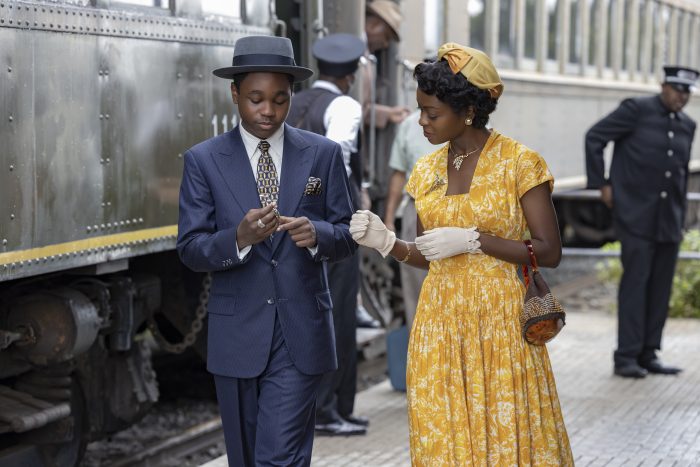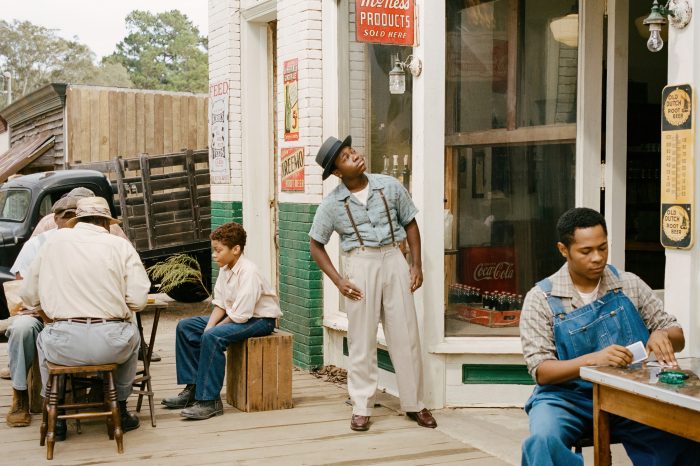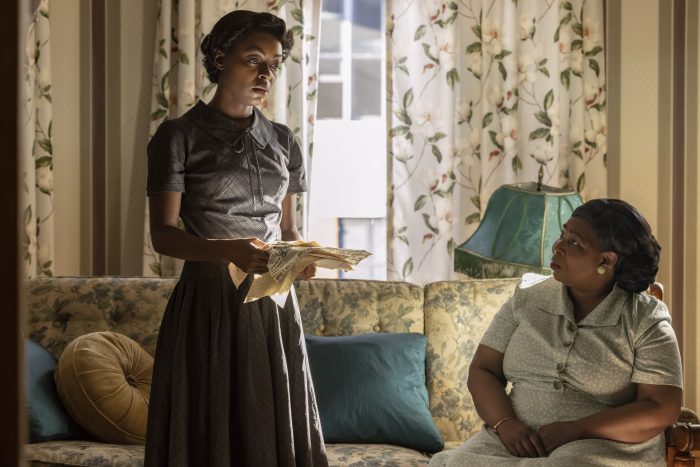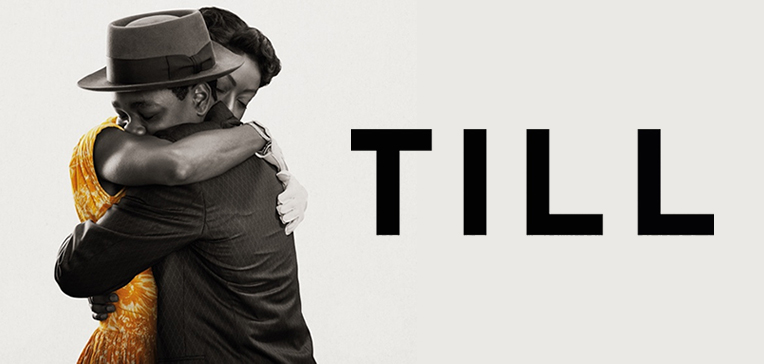There have never really been words to describe what happened to Emmet Till on August 24th 1957. Many have tried. Revenge, murder, lyching, hate crime, martyrdom have all been considered. But for Mamie Till it was one thing… loss. 67 years ago Mamie Till-Bradley lost her only son to the hatred of white supremacists, and now her perspective is finally being told.
Chinonye Chukwu’s ‘Till’ tells Mamie’s story, truthfully and wholeheartedly, building a legacy for the mother of America’s most famous lynch victim, whilst also imbrueing new life into the personification of Emmett Till.
In this film Emmett Till is not just the victim whose death sparked a civil rights movement. In this film Mamie Till is not just the mother who grieved for her son in front of a nation. In this film, both mother and son take on new lives as boy and activist respectively, in an equally personal and societal reflection on the murder which gave momentum to the Civil Rights movement.
The story is told delicately, holding its lead pairing with care and consideration through every scene, always respectful of the real people and real stories it is portraying.

The film opens with brightness and love, a mother-son shopping trip, however, echoes of the forthcoming tragedy still swirl throughout the musical notations and acting choices. This tension continues right through the film as audiences wait for a young boy’s mistaken whistle which sets in motion a heart-breaking series of events.
At every moment the magnitude of what’s being depicted is felt. The fear of witnessing a young child’s brutal murder hangs in the air right up until it happens, and afterwards, colouring every scene with a sense of discomfort and necessity. Because even with decades of hindsight, audiences feel hope for his rescue.
Historical moments that previously shocked a nation are cautiously reconstructed by Chukwu, and the honest emotions and perspectives of the time are brought to life for audiences to empathise with decades on.
The unveiling of Emmett’s mutilated corpse is a particularly notable reconstruction; a slow and purposeful reveal which takes its time to illustrate the full weight of his trauma. The shock value is effective and directly mimics the initial impact Mamie’s open casket choice had upon a country who, for the first time, were witnessing the true damage of lynchings.
The film also delves beyond Emmett’s death, stepping into the trial of his murderers as seen through Mamie’s perspective. When Mamie could have collapsed into history as the poor mother of a dead boy, she instead pushes back, insisting on testifying to get justice. When that trial inevitably fails, she commits her life to the education of children and the pursuit of civil rights.
Therefore, the core to the film is the real people it depicts, not just the textbook events they appear in.

Reinforcing the disposition of a young, loving, sunny boy named Emmett Till is Jalyn Hall, who brings a sense of brief joy and optimism to the screen before his demise. Although we never witness his death, the contrast of Emmet’s sense of life is important in cementing the emotional resonance of the film. It’s the loss of a child’s innocence, snuffed out by violence, death, hatred, and a cruel and unfair justice system that reinforces a necessary truth of history: that Emmett Till was not a man or a martyr, he was a boy. A child, lynched by white hatred. Hall is perfectly cast in the role, with acute youth and a bright sense of fun pulling us into the story with naive hope for his survival, from his first moments on screen, to his last.
If Hall’s Emmet is the core of the film, then Danielle Deadwyler’s Mamie is the driver. As the film reconstructs the legacy of the woman who constructed her own son’s posthumous purpose, Deadwyler fills every frame with intent. There is no scene which is incidental, no emotion uncalculated. This is a performance which bears the weight of tragedy, understanding at every level the significance of telling this story.
Wails and whimpers, but also unwavering resilience resonate from Deadwyler as Mamie processes various stages of grief, hatred, forgiveness, depression, shock, and resolve. An acting process which not only taps into a real mother’s emotions but forces audiences to feel them reverberating through history as well.
There is never a moment which feels half-baked or unnecessary – Mamie’s perspective is vital, and telling it right feels like the main goal of the entire filmmaking team.

Furthermore, ‘Till’ never shies away from the outright bigotry it must display, and takes care to not excuse this as simply ‘of the time’. In fact the greatest gift the film gives is its defiance against those who today say “it’s time to move on”.
As long as there are people who remember how bad it was, who recognise Emmett and Mamie’s trauma, who can conceptualised how far society has come… then there will be reasons to continue making it better.
To continue praising the representation of Black people and other marginalised groups in film. To continue fighting for Black lives. To stare aghast at the fact that it took 67 years to introduce the Emmett Till anti-lynching act, which was only passed into US federal law March of this year.
Why did it take so long? Because history forgot Emmett and Mamie Till. With Chukwu’s impassioned film it will never be allowed to forget again.
Till’ manifests a stark reminder of the past, imbued with resonant understandings of the present and desperate hope for the future. It encourages the vital continuation of work, even when recognising the improvements America and the world have seen. Despite ladened with 70 years of hindsight, the story continues to shock and spellbind, questioning how this murder could ever have been allowed to happen, and why, all these years later, justice simply never prevailed.
Prepare to grieve alongside Mamie Till-Bradley in what may be two of the most important hours of your year, as ‘Till’, Chinonye Chukwu, and Danielle Deadwyler work devastatingly hard to keep the family legacy alive.
‘Till’ releases in UK cinemas on January 6th
